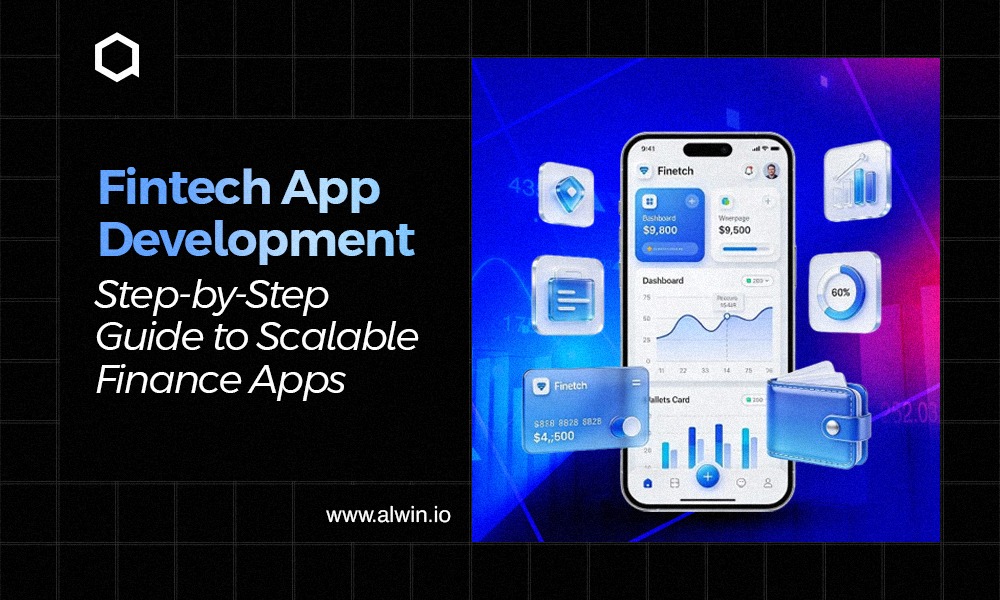The growth of cryptocurrency payment gateways is among the most interesting trends in this industry. These gateways serve as a bridge between traditional fiat currencies and digital currencies, allowing merchants to accept crypto payments seamlessly.
But what does the future hold for these gateways?
In this blog post, we'll delve into the possibilities and potential challenges of crypto payment gateways in the years to come.
The financial landscape is undergoing a transformative phase, with digitalization at its core.
Central to this transformation is the emergence and evolution of crypto payment gateways.
These gateways are not just altering the way transactions are conducted but also shaping the future of secure and efficient payments.
Information about Crypto Payment Gateways:
Crypto payment gateways facilitate the transfer of cryptocurrencies from a sender to a receiver, acting as a bridge between traditional banking systems and digital currencies.
They enable merchants to accept transactions in various cryptocurrencies, ensuring security and speedy settlement of trades without the hassle of currency conversion.
Importance of Digital Transactions in the Modern Era:
In today's fast-paced world, digital transactions have become a cornerstone of the global economy. They offer unmatched convenience, speed, and accessibility, empowering individuals and businesses alike.
As the digital economy continues to expand, the role of innovative payment solutions, such as crypto payment gateways, becomes increasingly crucial in ensuring a seamless, secure, and inclusive financial environment.
The Need for Crypto Payment Gateway:
Limitations of traditional payment gateways
Traditional payment gateways, while foundational to digital commerce, have limitations that can interfere with user experience and operational efficiency.
High transaction fees, slow processing times, and geographic restrictions are among the chief concerns.
These gateways rely on traditional banking systems, which often follow a lengthy process for cross-border transactions.
This can result in delays lasting several days before the funds are successfully transferred from one country to another. The involvement of multiple intermediaries, compliance checks, and international regulations contribute to the prolonged processing times associated with conventional banking systems.
As a result, users may experience frustration and inconvenience due to the extended waiting periods for their cross-border transactions to be completed.
Furthermore, they are often subject to regulatory constraints that can limit service availability in certain regions or countries, adding complexity to global commerce.
Advantages of using Crypto Payment Gateways:
Crypto payment gateways offer solutions to many of the issues inherent in traditional systems.
They allow transactions that are not only faster but also cheaper due to the decentralized nature of blockchain technology, eliminating the need for intermediaries. This means that businesses can accept payments from anywhere in the world without worrying about exchange rates or international fees.
Additionally, the use of cryptographic encryption enhances security, significantly reducing the risk of fraud and chargebacks, thus providing a more reliable and efficient service for both vendors and customers.
Evolutionary Stages of Crypto Payment Gateways:
Stage 1: Introduction of Bitcoin payment gateways
The first stage in the evolution of crypto payment gateways was marked by the introduction of Bitcoin payment gateways. This innovation allowed merchants to accept Bitcoin as payment, pioneering the concept of cryptocurrency transactions in a commercial context.
It represents a significant shift, demonstrates the potential of digital currencies in everyday transactions, and lays the groundwork for the development of more sophisticated crypto payment solutions.
Stage 2: Integration of multiple cryptocurrencies
This next stage saw the development of gateways capable of processing transactions in different cryptocurrencies, providing merchants and consumers with greater flexibility.
This multi-currency support helps to broaden the appeal and utility of crypto payments by accommodating the diverse preferences of users.
Stage 3: Smart contract-based payment gateways
The most recent advancement in the evolution of crypto payment gateways is the incorporation of smart contracts.
Since the terms of these contracts are explicitly written into the code, they are self-executing.
Smart contract-based gateways automate the transaction process, reducing the potential for human error and enhancing trust through transparent, immutable execution.
This stage represents a significant leap towards more secure, efficient, and automated crypto transactions, paving the way for a future where digital currencies could become a mainstream method of payment.
To know the price details of Cryptocurrency Payment Gateway Development! Chat with us on WhatsApp
Impact of Crypto Payment Gateways on Digital Transactions:
Enhanced Security: Crypto payment gateways leverage blockchain for encrypted, decentralized transactions, minimizing fraud and ensuring user anonymity.
Global Accessibility: These gateways enable borderless transactions, allowing businesses and individuals to conduct transactions worldwide without currency conversion or cross-border fees.
Cost Efficiency: With lower transaction fees and faster processing times, crypto payment gateways offer a more efficient and cost-effective payment solution for consumers and merchants alike.
Promising Use Cases of Crypto Payment Gateways:
- Cross-border Remittances
- Supply Chain Management
- Digital Identity and Inclusion
- Gaming and Entertainment
- Social Impact and Philanthropy
- Regulatory and compliance challenges
- Trade Finance
- P2P Transfers
Future of Cryptocurrency Payment Gateway:
B2B Digital Payments: B2B transactions are increasingly shifting towards digital platforms, with businesses opting for smooth and secure payment methods tailored to their needs.
Peer To Peer: P2P payments are gaining traction, offering individuals and businesses direct, instant, and cost-effective transfer of funds without intermediaries.
Multiple Payments Gateways: Flexibility is key, and businesses are leveraging multiple payment gateways to offer diverse payment options to their customers, enhancing convenience and expanding their reach.
GAFA: Tech giants like Google, Apple, Facebook, and Amazon are entering the payments space, introducing innovative solutions and shaping the future of digital transactions.
EMV: EMV technology ensures secure chip-based transactions, and safeguards against fraud and unauthorized access, thus becoming integral to the future of digital payments.
Internet of Things (IoT): IoT devices are revolutionizing payment experiences, enabling seamless transactions between interconnected smart devices, and enhancing efficiency and convenience.
Voice Commerce: Voice-activated payment systems are emerging, allowing users to make transactions using voice commands, paving the way for hands-free and intuitive payment experiences.
Artificial Intelligence: AI-driven payment solutions analyze data to personalize user experiences, detect fraud, and optimize processes, driving efficiency and enhancing security.
NFC Contactless Payments: NFC technology enables quick and convenient contactless payments, promoting hygiene and reducing transaction times, making it a preferred choice for modern consumers.
Fully Decentralized: Fully decentralized payment systems operate without central authorities, and offer unparalleled security, privacy, and autonomy to users, announcing a new era of financial sovereignty.
The Role of Cryptocurrency in Shaping the Future of Payment Gateways:
Cryptocurrencies are paving the way for a radical transformation in how we conceive and implement payment gateways.
Their unique characteristics, such as decentralization, transparency, and security, will position them as a formidable force capable of redefining the future of digital transactions.
Potential to replace traditional payment systems
Cryptocurrencies hold the potential to replace conventional payment systems by offering faster, more efficient, and cheaper transaction solutions.
Unlike traditional banking which operates within fixed hours, cryptocurrency transactions can occur round the clock, providing unparalleled flexibility.
Moreover, the inherent security features of blockchain technology minimize fraud risks, making crypto payments a safer option for both merchants and consumers.
This capacity for enhanced efficiency, coupled with lower transaction costs, is gradually promoting a shift away from traditional financial models towards more crypto-centric payment gateways.
Transformation of financial inclusion and empowerment
Cryptocurrency also plays a crucial role in transforming financial inclusion and empowerment. Traditional banking systems often exclude significant portions of the global population due to stringent requirements and geographic limitations.
Cryptocurrencies, by contrast, offer universal access to financial services, requiring nothing more than an internet connection.
This democratization of finance empowers individuals and communities, particularly those in underbanked regions, by providing them with the tools for economic participation and growth.
By developing a more inclusive financial ecosystem, cryptocurrencies are not just reshaping payment gateways but are also contributing to global economic empowerment.
Conclusion:
The journey of crypto payment gateways has been nothing short of revolutionary. From rudimentary attempts to integrate cryptocurrency into the digital payment space to the sophisticated platforms we see today, the evolution has been marked by significant technological advancements.
These gateways have not only simplified transactions involving cryptocurrencies but have also ensured higher security and speed, hence increasing the allure of digital currency for both companies and customers.
Potential future developments and their impact on digital transactions
Looking ahead, the future of crypto payment gateways holds promising developments that could further transform the landscape of digital transactions. Innovations such as smart contract integration, AI for fraud detection, and even more seamless cross-border transactions are on the horizon.
These advancements are expected to make crypto payments more accessible, secure, and efficient, thus accelerating the adoption of cryptocurrencies in mainstream commerce and potentially reshaping the global economy.
Approach WeAlwin Technologies to create your own Crypto Payment Gateway. Take your payment process to the next level with our Crypto Payment Gateway Development service!
Request a demo now and explore the endless possibilities of digital currency.



